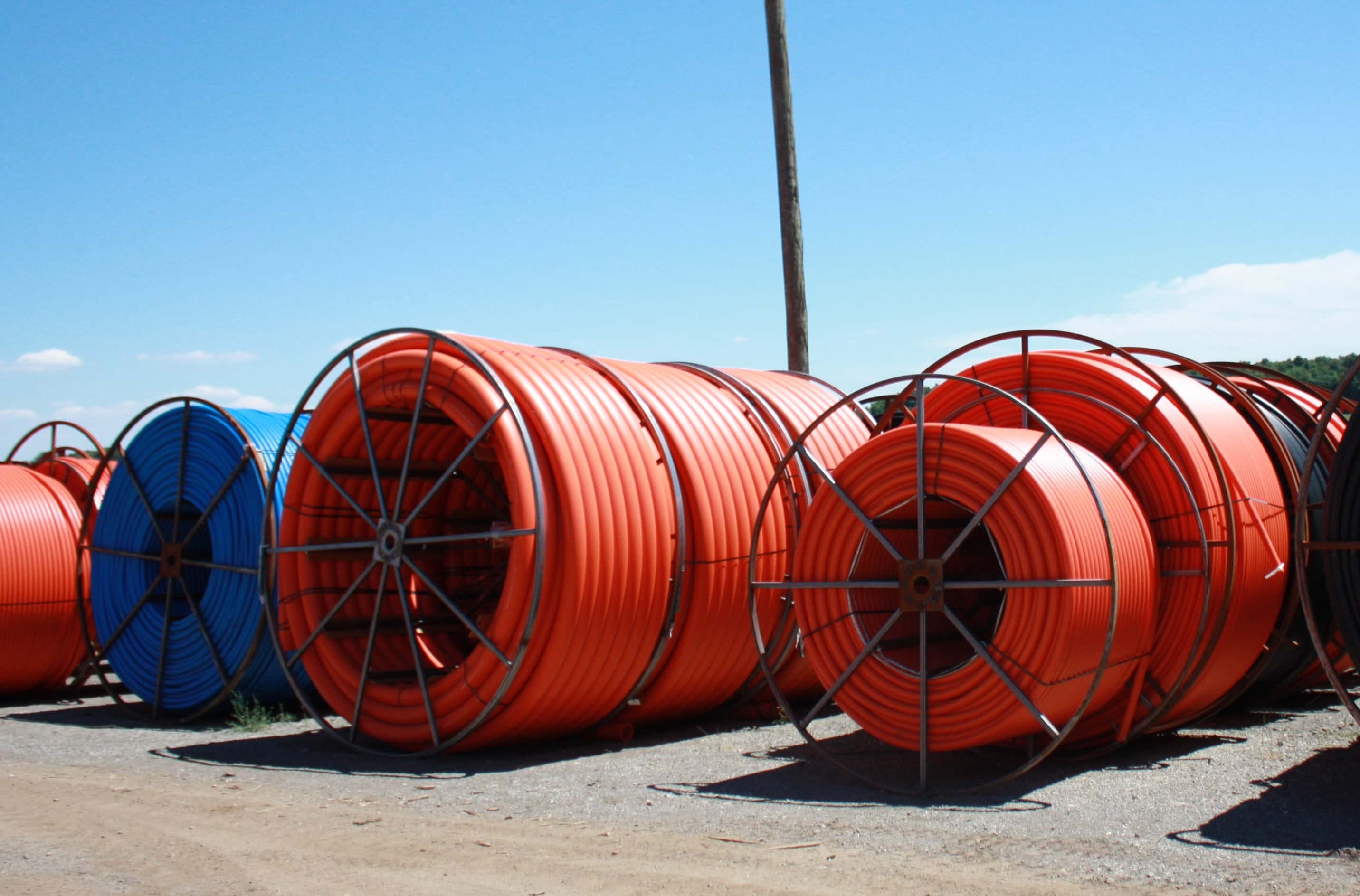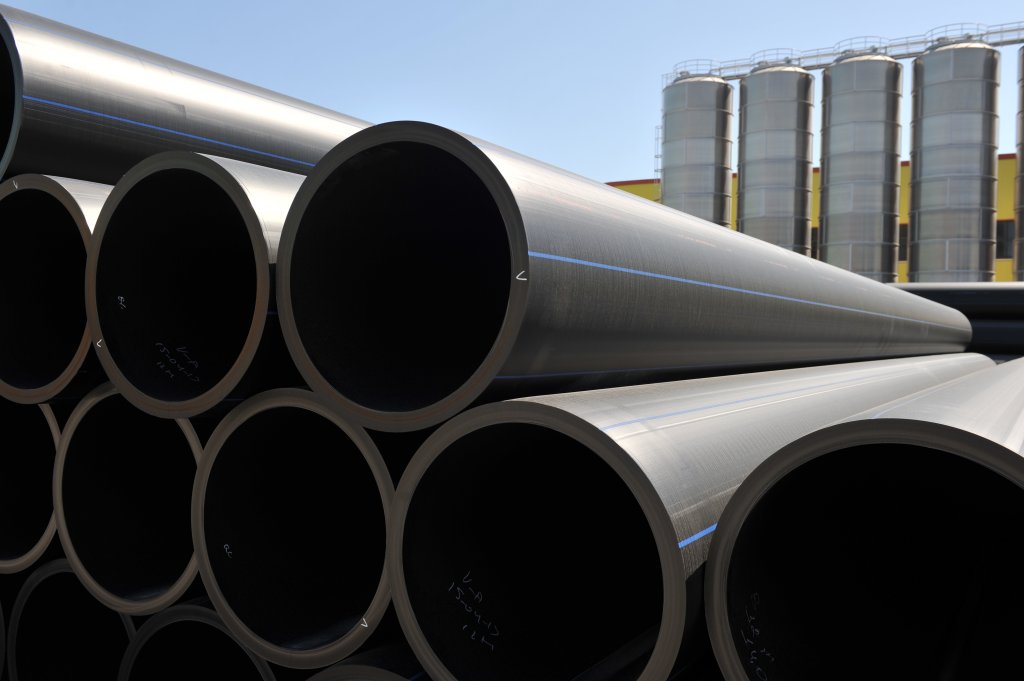The Future of American Plastics HDPE Pipe Manufacturing: What You Need to Know
Wiki Article
A Comprehensive Guide to the Different Uses of HDPE Pipeline in Building And Construction and Industry
HDPE pipes have actually emerged as a critical element in modern construction and industrial applications. Their one-of-a-kind buildings, such as resistance to rust and lightweight design, make them ideal for a vast array of usages. From water system systems to farming watering, HDPE pipelines offer solutions that boost performance and sustainability. Understanding their diverse applications is crucial for experts looking to maximize infrastructure. What certain benefits do these pipes offer each market?Water System and Circulation Solutions
Water supply and distribution systems are vital parts of city framework, frequently relying on high-density polyethylene (HDPE) pipes for their longevity and effectiveness. These systems transport drinkable water from treatment centers to consumers, guaranteeing access and safety and security. HDPE pipes are preferred for their resistance to deterioration, chemicals, and extreme temperature levels, which boosts their longevity and minimizes upkeep costs. Furthermore, their light-weight nature enables much easier installment and transportation, making them perfect for different metropolitan and rural applications.The versatility of HDPE pipelines enables them to be set up in limited areas and around challenges, decreasing the demand for extensive excavation (custom hdpe pipe manufacturing Midland TX). Their smooth interior surface minimizes rubbing losses, enhancing water flow prices. As cities remain to expand, the need for dependable water system systems boosts, placing HDPE pipes as a lasting option for contemporary framework projects. Their tried and tested performance history makes them a preferred option amongst engineers and urban planners alike
Wastewater Administration and Therapy
Reliable wastewater monitoring and treatment are essential for maintaining public health and wellness and environmental high quality. HDPE pipelines play a vital role in this procedure due to their longevity, resistance to rust, and ability to withstand rough chemicals. These pipes are frequently utilized in different applications, including sewer system, stormwater water drainage, and wastewater therapy centers. Their lightweight nature facilitates less complicated setup and transportation, minimizing labor costs and time.Furthermore, HDPE pipelines have a smooth interior surface area that minimizes rubbing loss, advertising effective circulation rates. They are also much less vulnerable to leakages and failings compared to traditional products, guaranteeing that impurities are consisted of effectively. In addition, their versatility permits for flexibility in numerous dirt conditions, making them ideal for varied environmental settings. As sectors increasingly focus on sustainable methods, making use of HDPE pipelines in wastewater administration systems aligns with objectives for decreasing environmental influence and boosting resource recuperation.
Agricultural Watering Solutions
In farming settings, efficient irrigation solutions are necessary for maximizing crop returns and taking care of water resources. HDPE (High-Density Polyethylene) pipelines play an essential role in contemporary irrigation systems due to their longevity, versatility, and resistance to corrosion. Their capacity to stand up to high stress makes them optimal for both surface and subsurface watering applications, guaranteeing uniform water circulation across fields.Farmers can utilize HDPE pipes in drip irrigation systems, American Plastics HDPE Pipe Manufacturing which supply water directly to plant origins, minimizing wastefulness and advertising healthy and balanced development. Furthermore, these pipes are lightweight and easy to set up, minimizing labor prices and installation time. Their lengthy lifespan and reduced maintenance needs additionally boost their allure in farming practices.
Additionally, HDPE pipelines are eco pleasant, as they can be reused and do not seep dangerous chemicals right into the soil. This makes them a lasting choice for farmers intending to adopt environment-friendly agricultural approaches while maximizing performance.
Industrial Applications and Processes
Convenience is a trademark of HDPE pipes, making them vital in numerous commercial applications and procedures. These pipelines are commonly made use of in chemical handling industries because of their exceptional resistance to a variety of corrosive materials. HDPE's lightweight nature, integrated with high tensile stamina, allows for simple setup and long-lasting performance popular environments.In the oil and gas market, HDPE pipelines play a vital duty in carrying hydrocarbons and gases, thanks to their toughness and flexibility - Midland TX HDPE Pipe Fittings in Stock. In addition, they are utilized in mining procedures for the transport of slurry and other products, where conventional piping systems may fall short
Moreover, HDPE pipes are increasingly made use of in manufacturing facilities for water system lines and wastewater monitoring. Their ability to hold up against severe temperatures and pressures makes them ideal for a range of industrial processes. Generally, HDPE pipes contribute greatly to efficiency and safety throughout diverse industrial applications.
Stormwater Monitoring and Drain Equipments
Stormwater monitoring and water drainage systems are important components in urban infrastructure, developed to take care of excess rains and decrease flooding threats. High-density polyethylene (HDPE) pipes are significantly made use of in these systems as a result of their resilience, adaptability, and resistance to corrosion. These pipes successfully transfer stormwater far from inhabited areas, reducing surface drainage and avoiding waterlogging.HDPE's light-weight nature helps with simpler installation, reducing labor prices and building and construction time. In addition, its resistance to chemicals and ecological stress factors assurances durability and dependability in different environments. Along with standard water drainage applications, HDPE pipelines are likewise utilized in ingenious options such as eco-friendly facilities, that includes rain gardens and absorptive sidewalks.

Regularly Asked Inquiries
Just How Does HDPE Pipeline Contrast to PVC Pipeline in Expense?
As a whole, HDPE pipeline often tends to be extra pricey than PVC pipeline because of its improved toughness and versatility. Lasting expense considerations, such as upkeep and lifespan, might favor HDPE in details applications.What Is the Life-span of HDPE Water Lines Under Varying Problems?
HDPE pipes typically have a life-span of 50 to 100 years, depending on ecological conditions, installment methods, and use. Elements such as temperature, soil kind, and exposure to chemicals can considerably influence their longevity.Can HDPE Pipeline Be Recycled After Usage?
Yes, HDPE pipes can be reused after use. The reusing process entails melting down the material, permitting it to be repurposed into brand-new items, thus advertising sustainability and reducing ecological influence related to plastic waste.Exist Any Kind Of Details Installation Challenges With HDPE Pipes?
Installment difficulties with HDPE pipes include appropriate jointing strategies, guaranteeing ample trench conditions, and managing thermal growth. In addition, competent labor is called for to take care of specialized equipment, which can complicate the setup procedure in numerous environments.
What Qualifications Should I Look for When Getting HDPE Pipelines?
When buying HDPE pipelines, one ought to seek certifications such as ASTM, AASHTO, and ISO, which verify top quality and conformity with industry criteria, ensuring sturdiness and efficiency in different applications. - American Plastics HDPE Pipe for OilfieldReport this wiki page